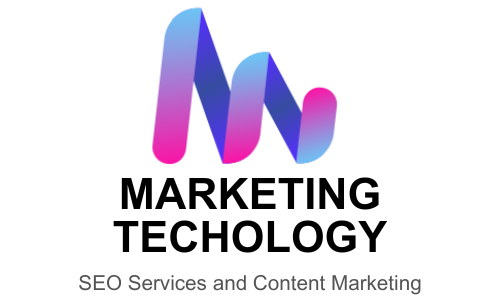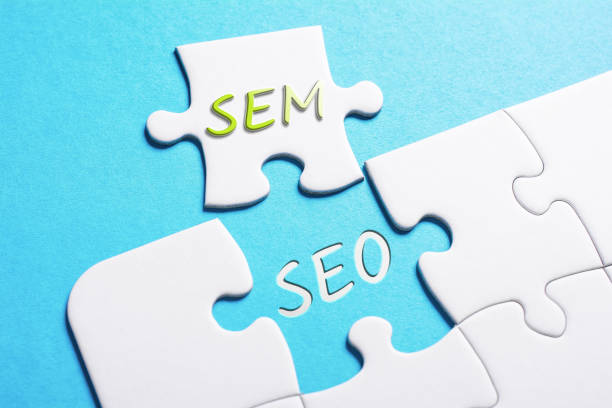In the world of digital marketing, businesses often hear about SEO (Search Engine Optimization) and SEM (Search Engine Marketing). But what is the difference between SEO and SEM? While both strategies aim to increase visibility in search engines, they function in distinct ways. Understanding their differences and how they complement each other is crucial for businesses looking to enhance their online presence.
With search engines like Google processing billions of searches every day, getting your business noticed online is more important than ever. SEO and SEM are two fundamental approaches to achieving this, but knowing which one to prioritize—and when—can be challenging. In this article, we’ll dive deep into SEO and SEM, their advantages and disadvantages, key differences, and how they can work together to maximize results.
What Is SEO?
SEO (Search Engine Optimization) is the process of optimizing a website to improve its organic search rankings on search engines like Google. SEO involves a variety of techniques, including:
- On-Page SEO: Optimizing content, meta descriptions, title tags, headers, and keywords.
- Off-Page SEO: Building high-quality backlinks to enhance domain authority.
- Technical SEO: Ensuring fast loading speeds, mobile-friendliness, structured data, and a secure website.
- Local SEO: Optimizing for local searches and Google My Business listings.
Benefits of SEO:
- Long-term, sustainable results.
- Builds trust and credibility.
- Cost-effective compared to paid advertising.
- Helps improve website usability and user experience.
- Attracts high-quality traffic with high intent.
- Generates a high return on investment (ROI) over time.
- Supports brand awareness and authority in your industry.
Challenges of SEO:
- Results take time to materialize (often months to a year).
- Requires continuous optimization and updates.
- High competition in certain industries.
- Algorithm changes can impact rankings.
- Demands ongoing content creation and link-building efforts.
- Requires technical expertise to implement correctly.

What Is SEM?
SEM (Search Engine Marketing) is a digital marketing strategy that uses paid advertisements to appear on search engine results pages (SERPs). It often refers to PPC (Pay-Per-Click) advertising, such as Google Ads. SEM involves:
- Keyword bidding: Selecting the right keywords to display ads based on user search intent.
- Ad copy optimization: Crafting compelling headlines and descriptions to attract clicks.
- Landing page optimization: Ensuring high conversions from ad clicks.
- Budget management: Allocating funds strategically for different campaigns and targeting.
- Performance tracking: Using analytics to measure the effectiveness of campaigns and improve targeting.
- Retargeting and remarketing: Showing ads to users who previously visited your website.
Benefits of SEM:
- Immediate visibility and traffic.
- Targeted reach based on demographics, interests, and search intent.
- Easy to measure and adjust campaigns for better performance.
- Provides A/B testing opportunities for ad effectiveness.
- Helps businesses compete for competitive keywords quickly.
- Enables brand exposure at the top of search results.
Challenges of SEM:
- Requires a continuous budget to maintain visibility.
- Click costs can be high in competitive industries.
- Short-term results that stop when the budget is exhausted.
- Requires expertise to manage campaigns efficiently.
- Click fraud can impact ad performance and ROI.
- Users may skip over paid ads in favor of organic results.

Pros and Cons of SEO and SEM
| Factor | SEO | SEM |
|---|---|---|
| Cost | Lower long-term cost | Higher cost per click |
| Time to See Results | Takes months to show results | Provides instant traffic |
| Credibility & Trust | Builds long-term credibility | Less credibility due to paid nature |
| Sustainability | Sustainable over time | Stops when budget runs out |
| Control Over Visibility | Limited control over rankings | Full control over ad placement |
| ROI | Higher in the long run | Can be immediate but requires investment |
| Competition | Tough in certain industries | Ability to outrank competitors instantly |
| Scalability | Scales slowly over time | Easily scalable with increased budget |

Key Differences Between SEO and SEM
- Cost: SEO requires time and effort but is free, whereas SEM requires a budget for ads.
- Speed of Results: SEO takes longer, while SEM provides instant visibility.
- Click-Through Rates (CTR): Organic results often have higher CTR than paid ads.
- Sustainability: SEO is a long-term strategy, while SEM stops when ads are paused.
- Credibility: Users often trust organic search results more than paid ads.
- User Intent Targeting: SEM allows for more precise audience targeting compared to SEO.
- Content Requirements: SEO relies heavily on content marketing, whereas SEM depends on ad copy and landing pages.
- Algorithm Dependence: SEO is highly dependent on search engine algorithms, while SEM gives advertisers more control over their placements.
- Conversion Strategy: SEM often focuses on immediate conversions, while SEO builds long-term customer relationships.

SEO and SEM: Can They Work Together?
Absolutely! SEO and SEM can complement each other to create a well-rounded search strategy. Here’s how:
- Immediate Traffic + Long-Term Growth: SEM provides instant results, while SEO builds lasting visibility.
- Keyword Data Sharing: SEM can help identify high-performing keywords for SEO strategies.
- Reinforced Brand Visibility: Appearing in both organic and paid search results strengthens brand awareness.
- A/B Testing: SEM campaigns can test content effectiveness before implementing SEO changes.
- Competitive Advantage: Using both strategies ensures better SERP dominance over competitors.
- Enhanced Data-Driven Insights: SEO and SEM analytics together provide a comprehensive view of audience behavior and preferences.
- Better Budget Allocation: SEM can drive immediate traffic while SEO builds a steady foundation, optimizing marketing spend.

Conclusion
Both SEO and SEM play essential roles in a successful digital marketing strategy. While SEO is a long-term investment for organic growth, SEM provides immediate results and targeted visibility. Businesses should consider using both strategies to maximize their online presence. A balanced approach to SEO and SEM ensures a comprehensive search strategy that covers both immediate and sustainable growth.
Marketing Technology offers expert SEO services and content marketing solutions to help businesses achieve their digital marketing goals. Whether you’re looking to optimize your website for search engines or launch a high-converting paid ad campaign, our team is here to help you succeed. Contact us now!

Frequently Asked Questions
Is SEO or SEM more important?
Both SEO and SEM are important, depending on your goals. If you need immediate traffic, SEM is beneficial. However, for long-term growth and credibility, SEO is crucial. Businesses should ideally integrate both strategies for optimal results.
What are the advantages of SEM over SEO?
SEM provides instant results, allows for precise audience targeting, and offers measurable ROI. Unlike SEO, which takes time to rank, SEM campaigns can generate immediate traffic. Additionally, SEM offers greater control over visibility, allowing businesses to appear at the top of search results instantly.
Is SEO more expensive than SEM?
SEO is generally more cost-effective in the long run, as it focuses on organic traffic. SEM requires continuous spending on ads, making it more expensive over time, especially in competitive industries. However, SEO demands a significant upfront investment in content, optimization, and technical improvements.





